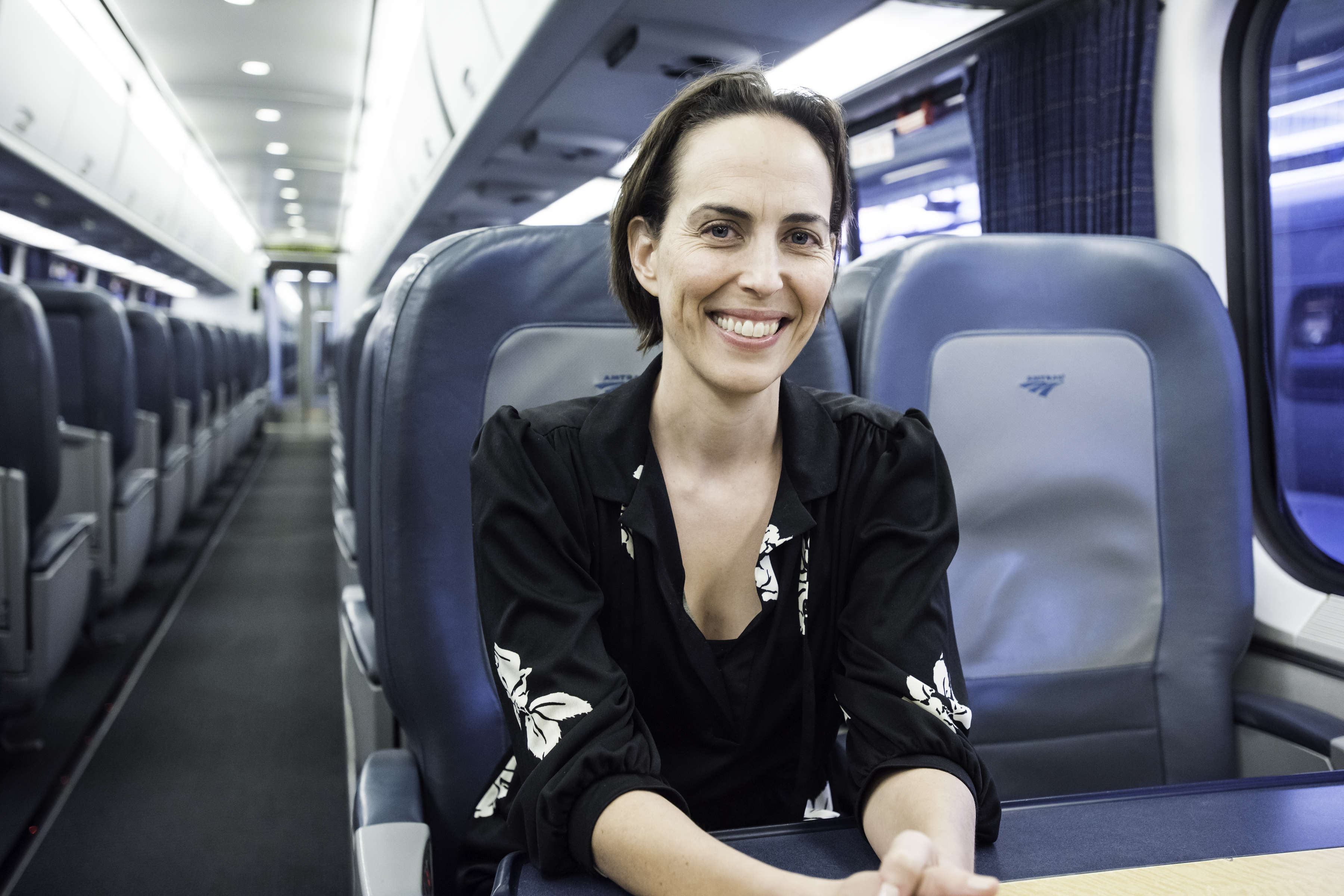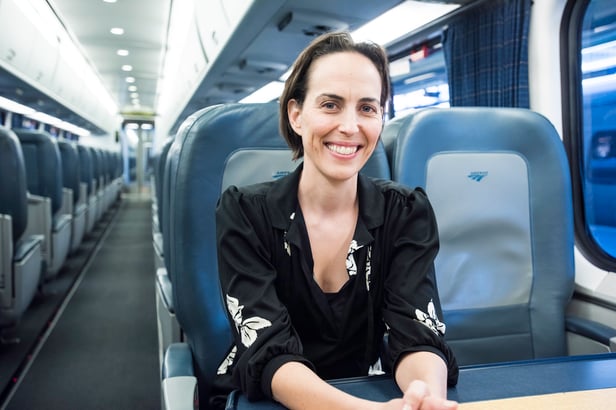Sarah Federman, Ph.D. Joining Kroc School Faculty as Associate Professor of Conflict Resolution

Sarah Federman, Ph.D., author, educator, and conflict resolution practitioner, will be joining the Kroc School's faculty starting in Fall 2022 as an Associate Professor of Conflict Resolution. Federman is a graduate of George Mason University’s Carter School for Peace and Conflict Resolution where she earned her doctorate in Conflict Analysis and Resolution. She earned her MA in International Affairs from The American University of Paris, and BA in Intellectual History from the University of Pennsylvania.

Sarah Federman, Ph.D., Associate Professor of Conflict Resolution, Kroc School of Peace Studies
To help the University of San Diego and the Kroc School community get to know Professor Federman better, she answered the following questions about her career and life, and the road that led her to the Kroc School.
How would you describe yourself, personally and professionally?
I would describe myself as mission-driven, open-minded, adaptable, and cheery. My mission is to help humanity live more harmoniously with each other, the planet, and its inhabitants. Traveling to nearly forty countries has exposed me to numerous conflicts and approaches to their transformation. I integrate this wisdom into my teaching and research.
Some people say that I’m surprisingly cheerful for spending my days addressing the horrors humanity has inflicted. I take time to renew myself, celebrate (and look for) all of the good around us. There is much good to be found. The fact that the Kroc School exists is proof of this good.
Can you provide a brief summary of your career up to joining the Kroc School?
I first spent a decade as an international advertising executive first in Manhattan and then in Paris working with companies like NFL, Discovery, Bloomberg, Google, and dozens of others around the world. The transfer to Europe exposed me to the size and impact of the world wars. After seeing the trenches from WWI, the death camps from WWII, and the lists of Stalin’s 25 million victims, I wanted to find a way to help prevent these horrors. When I saw my own name on a Holocaust memorial wall in Paris, I took action. While in Paris I studied the role of the national railways in the Holocaust and then finished that work during my doctorate. My resulting book Last Train to Auschwitz talks about how companies can atone for their complicity in human rights violations.
When the University of Baltimore hired me as an Assistant Professor, a number of students who learned about my research asked, “what about us?” By this they meant, what about corporations who profited from slavery? At their rightful urging, I expanded my work to include atonement issues related to slavery, colonialism and other atrocities.
What are your primary areas of study? And how would you describe your teaching style?
My primary areas of study are corporate atonement for mass atrocity and pedagogy. By pedagogy, I mean looking for how to improve the ways we teach peace and conflict studies.
For example, noticing that my Baltimore students (largely from historically marginalized groups) could not relate to much of the negotiation literature, I had them coach each other. This resulted in a forthcoming book that shares their stories and insights with other first-generation college students. We also considered how negotiation can be used to upend oppression not just get people into positions of power.
Do you have any recent publications or articles?
Narratives of Mass Atrocity: Victims and Perpetrators in the Aftermath eds. Sarah Federman and Ronald Niezen (Cambridge University Press) (2022)
Last Train to Auschwitz: The French National Railways and the Journey to Accountability. University of Wisconsin Press. (2021) Nautilus Award Winner.
How Companies Can Address Historical Transgressions. Harvard Business Review.
What do you hope to accomplish in your first few years as a faculty member?
In my first few years, I’m eager to get to know the students, my fellow faculty, and the wider USD community. I will build relationships with those in San Diego doing good peace and conflict work. These relationships can enrich our classes and provide job opportunities for our graduates.
I’ll also be working on a new book that I’ll share more about as the project unfolds.
What do you think Kroc School students and the broader USD community will learn from you?
I will share ways to approach challenges (personal and political) that can enhance communities and relationships. I will also share the importance and possibilities of atonement work for institutions that have participated in mass harm. Understandably, people argue that we need to focus on those in need today, rather than those who suffered long ago. The past lives in the present. Organizations that address their historical transgressions can respond to the legacies of the harm and commit to more ethical behavior going forward.
I’m excited to see what I will learn from you all!
What do you do for fun? How do you like to spend your time when you're not working?
I love to spend time with friends, swim, surf, play guitar, and travel.
Last question, what have you read recently that you recommend?
I recommend In This Place Together: A Palestinian’s Journey to Collective Liberation by Penina Elberg-Scwhartz and Sulaman Khatib. Sulaman’s daughter was murdered as a result of the Israeli/Palestinian conflict. He has spent decades healing and working towards a peaceful solution. Without either romanticizing peace work or becoming cynical, his story can help prepare anyone willing to take on some of the biggest challenges of our times.
For more information, please visit www.sarahfederman.com

About the Author
The Joan B. Kroc School of Peace Studies (Kroc School) at the University of San Diego is the global hub for peacebuilding and social innovation. Founded in 2007, the Kroc School equips the next generation of innovative changemakers to shape more peaceful and just societies. We offer master's degrees in peace and justice, social innovation, humanitarian action, conflict management and resolution, and a dual degree in peace and law — programs that have attracted diverse and dynamic students from more than 50 countries. In addition to our graduate programs, the Kroc School is home to the Kroc Institute for Peace and Justice (Kroc IPJ). Founded in 2001, the Institute supports positive change beyond the classroom. Through groundbreaking research, experiential learning, and forward-thinking programs, the Kroc School and Kroc IPJ are shaping a future in which peaceful co-existence is the new normal.





